 History
History  History
History  History
History 10 “Modern” Problems with Surprising Historical Analogs
 Health
Health 10 Everyday Activities That Secretly Alter Consciousness
 History
History Top 10 Historical Disasters Caused by Someone Calling in Sick
 Animals
Animals 10 New Shark Secrets That Recently Dropped
 Movies and TV
Movies and TV 10 Forgotten Realities of Early Live Television Broadcasts
 Technology
Technology 10 Stopgap Technologies That Became Industry Standards
 Weird Stuff
Weird Stuff 10 Wild Facts About Taxidermy That You Probably Didn’t Know
 Travel
Travel 10 Beautiful Travel Destinations (That Will Kill You)
 Miscellaneous
Miscellaneous 10 Modern Marriage Rituals Born from Corporate Branding
 History
History 10 Extreme Laws That Tried to Engineer Society
 History
History 10 “Modern” Problems with Surprising Historical Analogs
 Health
Health 10 Everyday Activities That Secretly Alter Consciousness
Who's Behind Listverse?

Jamie Frater
Head Editor
Jamie founded Listverse due to an insatiable desire to share fascinating, obscure, and bizarre facts. He has been a guest speaker on numerous national radio and television stations and is a five time published author.
More About Us History
History Top 10 Historical Disasters Caused by Someone Calling in Sick
 Animals
Animals 10 New Shark Secrets That Recently Dropped
 Movies and TV
Movies and TV 10 Forgotten Realities of Early Live Television Broadcasts
 Technology
Technology 10 Stopgap Technologies That Became Industry Standards
 Weird Stuff
Weird Stuff 10 Wild Facts About Taxidermy That You Probably Didn’t Know
 Travel
Travel 10 Beautiful Travel Destinations (That Will Kill You)
 Miscellaneous
Miscellaneous 10 Modern Marriage Rituals Born from Corporate Branding
10 Things Everyone Gets Wrong About Addiction
We’ve all heard about celebrities with drug addictions who check into rehabilitation clinics, and many people have known at least one person in their lives with a substance abuse disorder. But it’s still one of the most misunderstood concepts out there. While some people might think that addiction is a problem for the poor, it is something that permeates all corners of society from the least wealthy to the most. In many cases, people have tried to deal with drugs, gambling, and other addictive pastimes with results that only seemed to make the problem worse. If we are ever going to truly conquer the issue, we must learn what causes it in the first place and get past our misconceptions.
10D.A.R.E.’s Influence
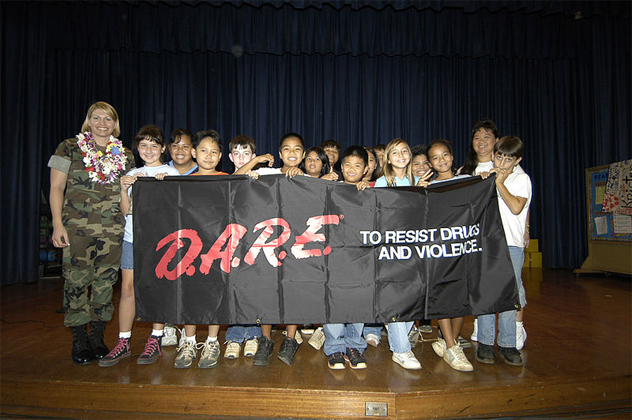
If you went to school in the United States during the 1980s (or the 1990s in Great Britain), there is a good chance you came across the program D.A.R.E. The acronym stands for Drug Abuse Resistance Education and the program was formed by a former police officer with the help of Los Angeles schools to get teens to do fewer drugs and be better people. It fit with the message of the era as put forth by Nancy Reagan, which is that the best way to avoid doing drugs was to “just say no.” Clearly, Nancy had never encountered peer pressure. While it was certainly a heartfelt attempt to decrease drug use in schools, most people believe that D.A.R.E did more harm than good.
Studies have shown that D.A.R.E. wasn’t very successful at all, which has prompted them in more recent days to reevaluate how they do things. The original program was meant to teach kids about the dangers of drugs, but it also claimed that drugs were basically around every corner and were absolutely awful in every way. They also aimed to increase children’s self-esteem—this was a cornerstone of the program. The studies followed children who went through the program and found that they were just as likely to do drugs as their peers, and more likely to have lower self-esteem. If that wasn’t bad enough, another look at the program suggested that some kids who went through it were more likely to do drugs, which is the exact opposite of what they intended.
Experts believe that the problem lies entirely in the way the message was presented. Even children don’t really take well to exaggerations and misinformation, however well-intentioned it is. Some people also believe that telling kids that everyone was doing drugs actually made kids more likely to do drugs because they thought it would help them fit in. Perhaps D.A.R.E. has learned that the best way to keep kids from drugs is to tell them the real dangers instead of exaggerating them, and make it clear that no, not everyone does drugs.
9The Hidden Problem Of Addiction Switching
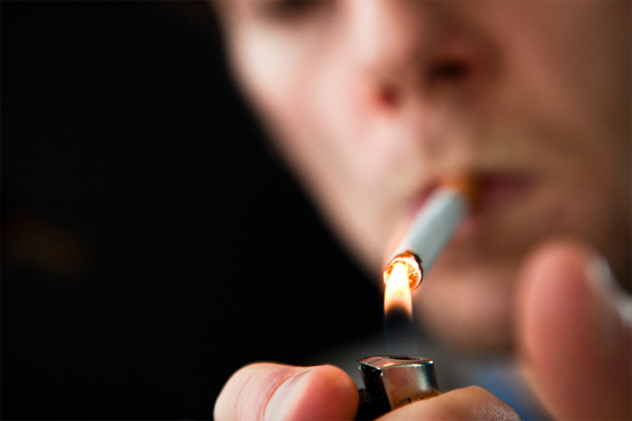
One of the biggest causes of addiction is not so much the chemical hooks themselves, but the environment in which the addict lives and the state of their emotions and life. What this means is that if someone is weaned off a drug, but the underlying causes of what made them likely to become an addict in the first place are not addressed, they often end up just switching their addiction to something else. This is why some people have gone to rehab clinics and managed to drop their addiction to deadly drugs, only to come out with a brand new addiction to sugary or fatty foods that made them gain a ton of weight. Of course, most people would still say that this is a better alternative, and the specific problem could be solved by offering better meal plans and advice at rehabilitation clinics.
The much bigger problem is that addiction switching often means simply switching from one hard drug to another—fatty foods and sugar are really the least of your worries. Researchers have explained that it’s not uncommon for opiate users to switch to alcohol because they don’t think it’s as bad as what they’ve been using. It’s also not uncommon for it to happen the other way around, where an alcohol addiction is replaced by an opiate addiction.
Psychiatrist Dr. Gregory Collins, a drug addiction recovery specialist in Cleveland, Ohio, believes that there may be as many as one in four drug addicts who just end up switching to a different substance. To make matters worse, he says that he wasn’t even counting people who take up smoking cigarettes to cope with the withdrawals when he came up with his estimate. Experts like Dr. Collins are increasingly suggesting an approach that involves understanding the patient’s core reason for using drugs or taking part in other addictive behaviors in order to truly bring an end to the problem that plagues them.
8Binge Drinking And Alcoholism
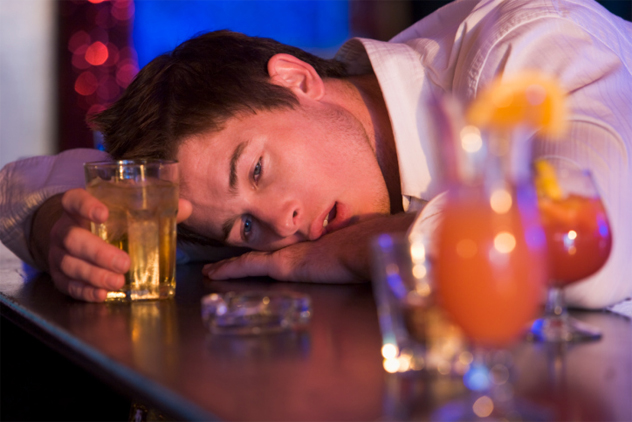
A lot of people assume that alcoholism is characterized by binge drinking or heavy drinking throughout the week. On the other hand, there was a recent report that went around the Internet claiming that most binge drinkers are not actually alcoholics. There’s actually some truth to both claims. The recent report was based on a study which found that, of people who consume alcohol excessively, only about 10 percent actually ended up alcoholics. That’s good news, considering that roughly one-third of the population drinks excessively. For the purposes of this particular report, excessive drinking was defined as either imbibing five drinks for men or four drinks for women in one session, or drinking more than 15 drinks in a week for men or more than eight for women.
However, while the study might sound like it’s defending the practice of binge drinking, the researchers were quick to point out that they don’t think binge drinking is a good idea—they just hesitate to use the terms “alcohol dependence” or “addiction” unless it fits more serious criteria. They also caution that just because an excessive drinker is not an alcoholic does not mean their lives aren’t negatively affected by their decisions. In fact, the researchers caution that many excessive drinkers who are on the border do not realize that alcohol has anything to do with their problems at all.
To make matters worse, they suggest that detrimental effects are caused to the lives of roughly one-third of excessive drinkers—you don’t need to be truly addicted for a substance to mess up your life.
7You Can Be Addicted To Practically Anything

When you mention being addicted to nebulous, non-drug things such as watching television, playing computer games, reading books, or working out, people tend to scoff. Most people who say stuff like that aren’t being serious, but the truth is that nearly any behavior has addiction potential. It’s still such a strange concept in our culture that most people really just don’t take it that seriously. And while you could say that an addict is never likely to admit to their addiction, the truth is that if these behaviors were taken as seriously as drug addictions are, the friends to whom they say this stuff would also take it much more seriously and there would be more social pressure for the addict to change their behavior.
Now, we mentioned things like television and video games, but one of the most addicting behaviors in the world is gambling. Most people assume that quitting something like gambling couldn’t possibly be as hard as, say, kicking nicotine or heroin, but the research on the matter has shown that gambling addicts can suffer physical withdrawal symptoms just as bad or worse than drug withdrawals. Some symptoms include heart palpitations, difficulty breathing properly, and pain in various parts of the body. It all comes down to the fact that addiction is more about a set of behaviors than it is a particular substance, and taking away something which our body is used to constantly having will almost always lead to a bad reaction.
6Marijuana Withdrawals
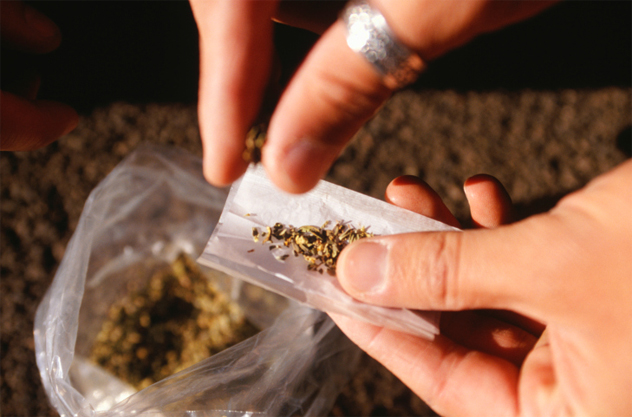
Most people wouldn’t consider marijuana to be a particularly dangerous drug. Unfortunately, due to the fact that marijuana’s illegality has made it difficult to perform studies, we still don’t know much about the mechanisms behind the drug’s relation to dependence and addiction. But now that it’s been legalized in some places, researchers have begun to get a clearer idea of how it affects people in the long term, especially when it comes to quitting. The common belief for the longest time was that you couldn’t really experience physical withdrawal from quitting reefer, but that’s not entirely true.
According to researchers, the symptoms of marijuana withdrawal can include trouble sleeping, increased anxiety levels, lots of fidgeting, irritability in general, and decreased appetite. The symptoms can reportedly be bad enough for some people that they significantly impair their functioning and make them more likely to relapse and use more in the future. This doesn’t mean it is necessarily anywhere on the same level as hard drugs, but it is important for people to remember that you can become addicted to—and suffer withdrawals from—pretty much any substance.
5The Real Cause Of Addiction
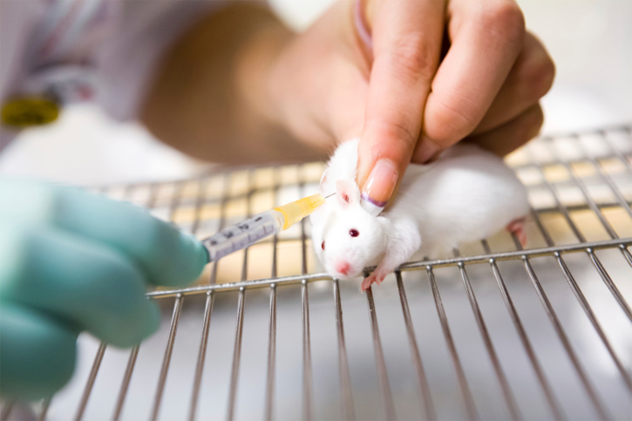
Most people think that addiction is the result of chemical changes that are made in your brain. The drug sets off the pleasure centers of your brain, making you want more and more until your brain starts to change shape and adapt. Soon enough, you’re nothing but a mindless zombie junkie, rewired to need your fix of choice. However, according to Johann Hari, author of Chasing The Scream: The First And Last Days In The War On Drugs, addiction actually has very little to do with the drugs themselves at all.
In an article for The Huffington Post, Hari wrote of a study done back in the 1980s involving rats. In the study, the rats were put in isolated cages with two water bottles: one that was laced with cocaine or heroin and another with regular water. The experiment found that the rat would become addicted to the substance and keep abusing until it caused its own death.
He then cites another study that was meant to disprove the previous one. In the new study, rats that were given drug additions were later put in an amazing rat enclosure with plenty of toys and other rats to play with. Before long, the rats were no longer drug addicts, even if they still had access to the drugs. They just didn’t need it as much anymore because they had the right emotional connections and bonds.
He also cites the fact that roughly 20 percent of soldiers in Vietnam becoming addicted to heroin while fighting the war, but 95 percent of them stopped using without any serious trouble upon returning home. He argues that the real cause of addiction isn’t the drug itself—although the biological changes caused by the drug can be a contributing factor—but the lack of proper bonds with other humans. In other words, he feels that people are actually forming connections with whatever they are addicted to in lieu of proper human connections.
4The Allure Of Online Gambling

We all know the lure of the casinos, and many people know at least some of the tricks that are used to keep people gambling. For example, casinos usually don’t have clocks and will happily ply their gambling clients with free drinks to impair their judgment. We’ve also already mentioned that gambling can be an extremely serious form of addiction along the lines of hard drug abuse, but many people don’t realize that online gambling is not only just as addicting as the casino variety, it can also be much, much more addicting on its own.
In the United States, most online gambling is no longer around or has gone underground due to stricter laws governing it. But the UK both allows it and lets online casinos advertise—which has caused a huge jump in online gambling. However, the truly depressing numbers are the statistics on gambling in person and gambling online, and their relation to addiction. According to the report, you have a 5 percent chance of developing a life-ruining relationship with gambling if you are doing it online, and only a 0.5 percent chance if you doing it in the physical form. This is disturbing because it means that the more readily accessible form of the habit is actually harder to break.
3Dependence Is Not Necessarily Addiction
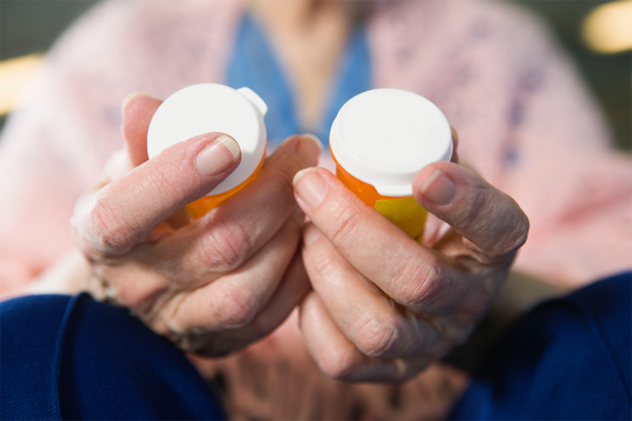
There’s actually a pretty fine line between addiction and physical dependence. Many people falsely conflate the two, thinking that if someone is dependent on a drug, they must be addicted to it. Unfortunately, this thinking completely sidesteps the nature of addiction. The reason addiction is so hard to understand is because there isn’t one set of exact behaviors that makes someone an addict. An addict could easily be a total mess, but someone could also be in such a state for other reasons.
In order to actually pass as an addict, generally you have to have tried to quit multiple times and failed, know that the drug is messing up your life or your health (or both), and continue to do it anyway despite the wreck it is turning your life into. Whether it’s drugs or a specific behavior, these are the real criteria for addiction. Physical dependence means you’ve built up a tolerance to the drug and may have some withdrawal symptoms when you stop using, but you have no psychological need for it to fill a void in your life. This is the reason many people can take opiates for pain and just stop using when they are done—because they don’t require the drug psychologically. Dependence can help lead to addiction, but it is not the same thing at all.
2Alcoholics Anonymous

Alcoholics Anonymous (AA) is the original 12-step treatment plan originally designed for alcohol addiction, with the idea behind it being adapted to help people deal with narcotic addictions as well. It is incredibly well known, and the first place many people look when thinking about getting help quitting alcohol is AA. But it’s also a very misunderstood program, and there are many misconceptions about how it works. Many people may be surprised that AA has an incredibly strong faith-based component. Part of the program actually literally wants you to put your faith in a higher power to help you beat your craving for alcohol, because they believe the addict can’t handle the power of the craving on their own.
Now, this higher power doesn’t necessarily have to be a deity, but God is commonly mentioned throughout the program, which might make some people uncomfortable. The AA process also believes that the person in question will always be a recovering alcoholic. In other words, the battle with the desire to drink will last the rest of their lives. Some people disagree with certain components of the process—such as interventions—because they could damage personal relationships or push people away.
However, despite its flaws, there is increasing evidence that the skeptics are wrong and those who use AA for addiction recovery have a high chance of keeping away from their vice of choice. It’s hard to say for certain what makes AA so effective, but there’s a good chance that the community-based aspect is a big help. It makes sense that having constant contact with people who are going through the same problem would be beneficial, and the well-organized steps are a good way to keep people on track. AA is a useful organization for those who commit to it, but it may not be the right fit for everyone.
1The Addictive Properties Of Caffeine

Caffeine is one of those things that many people will casually admit to being “addicted” to, but most of those same people think of it as a joke. Like the idea of being addicted to reading or working out, even if they know it’s a possibility, most people don’t really take it seriously because it doesn’t seem like something that would actually happen to them. Caffeine is just not that strong a drug compared to stimulants like amphetamines—but that makes it all the easier to disregard.
It may not seem like much of a problem, but excessive consumption of caffeine is not very good for your health, and many people have trouble quitting caffeine even after being advised by to do so their doctors for health reasons. And that’s an important criteria for diagnosing addiction. To make matters worse, we all know the dreaded caffeine headache if we don’t have it on a regular basis, but for some people, these headaches and other psychological withdrawal symptoms can be so debilitating that they can’t get to work or live their daily lives. Many researchers who have been studying the detrimental effects of excessive caffeine consumption think that people should take the drug more seriously.








